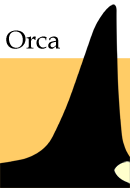INTRODUCTION
Overview
Download and Install
Quick Start
Documentation
Publications
NONFRAMEWORK CODE
Driver Interfaces
Drivers
Libraries
Utilities
FRAMEWORK CODE
Interfaces
Components
Libraries
Utilities
Full Software Listings
DEVELOPER
Tutorials
Examples
Dev Guide
Dashboard
PEOPLE
Contributors
Users
Project
Download
Mailing lists
Slice2Log
[Utilities, Linux]
Generates functions for reading/writing ASCII logs from Slice definition files. More...
Generates functions for reading/writing ASCII logs from Slice definition files.
This utility is used for autogenerating code from Slice definitions.
$ slice2util --help
Generated Logging Functions
- Generated Functions
Slice2String generates toString() function for every Slice-defined:
- Enum
- Struct
- Class
- Sequence
- Dictionary
Example:
// C++ #include <orcaifacestring/datetime.h> #include <orcaifacestring/bros1.h> orca::Time t; t.seconds = 123; t.useconds = 45; cout<<ifacestring::toString( t )<<endl; orca::Frame2d f; f.p.x = 1.2; f.p.y = 3.4; f.o = 5.6; cout<<ifacestring::toString( f )<<endl;
This program will produce the following output:
struct orca::Time seconds = 123 useconds = 45 struct orca::Frame2d p = struct orca::CartesianPoint2d x = 1.2 y = 3.4 o = 5.6
The signature of the toString() function is the same for all data types. E.g. for a data type Type in Slice module module (e.g. orca), the generated function would have the following signature:
std::string toString( const module::Type& obj, int recurse=1000, int expand=-1, int indent=0 );
where
recurseis the number of recursive calls, toString() will make. Default is 1000, i.e. it will most likely recurse through entire type hierarchy.expandis the number of sequence or dictionary elements toString() will print out. Default is -1, which means "all elements".indentdetermines the number of characters used to indent to top level of the data type. This parameter is incremented as toString() is called recursively.
Examples:
- Full recursion and full expansion
// C++ cout<<ifacestring::toString( scan )<<endl<<endl; // output class orca::RangeScanner2dData timeStamp = struct orca::Time seconds = 123 useconds = 45 ranges = sequence (2) [0] 3 [1] 13 minRange = 0 maxRange = 33 fieldOfView = 77 startAngle = 13 - No recursion
// C++ cout<<ifacestring::toString( scan, 0 )<<endl // output class orca::RangeScanner2dData
- Recursion limited to 1
// C++ cout<<ifacestring::toString( scan, 1 )<<endl // output class orca::RangeScanner2dData timeStamp = struct orca::Time ranges = sequence (2) [0] 3 [1] 13 minRange = 0 maxRange = 33 fieldOfView = 77 startAngle = 13 - No expansion
// C++ cout<<ifacestring::toString( scan, 1000, 0 )<<endl<<endl; // output class orca::RangeScanner2dData timeStamp = struct orca::Time seconds = 123 useconds = 45 ranges = sequence (2) minRange = 0 maxRange = 33 fieldOfView = 77 startAngle = 13
Generated Logging Functions
Slice2Log generates toLogStream() and fromLogStream() functions for every Slice-defined:
- Enum
- Struct
- Class
- Sequence
- Dictionary
The signature of the toLog() function is the same for all data types. E.g. for a data type Type in Slice module module (e.g. orca), the generated function would have the following signature:
void toLogStream( const module::Type& obj, std::ostream& os ); void fromLogStream( module::Type& obj, std::istream& is );
They can be used with std::[i/o]fstream (logging) or std::[i/o]stringstream (easier for testing) objects
- Limitations
This tool is limited compared to slice2cpp.
- Not all types of objects can be used in private data types (i.e. structs, classes, sequences, dictionaries). Specifically no Ice, IceStorm types, etc. are allowed. This limitation stems from the fact that we don't run
slice2utilon the Ice-supplied types.- Orca project: only Orca types are allowed.
- Satellite projects: only Orca and project types are allowed.
- There is a limitation when working with derived classes. The following combination is not supported:
- Holding a pointer to a base class, AND
- The actual object is a derived class defined in a file different from the base class.

 1.4.5
1.4.5